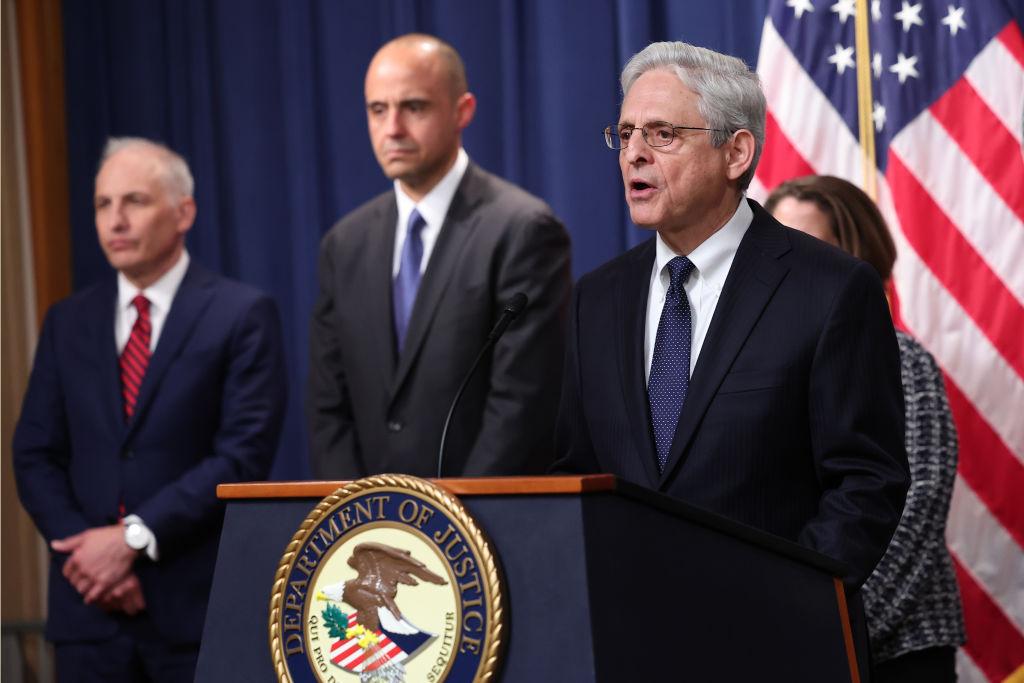In a move that has sent shockwaves through Washington, D.C., Matthew Graves, the U.S. Attorney leading the prosecution of January 6 cases, has reportedly announced his resignation. With Donald Trump set to return to the White House, Graves’ departure raises questions about the future of high-profile prosecutions tied to the Capitol riot.
Resignation Raises Questions About Justice and Accountability
Matthew Graves’ resignation has sparked speculation about its timing and potential implications. Known for his central role in prosecuting hundreds of individuals involved in the January 6 Capitol breach, Graves has faced both praise and criticism for his aggressive pursuit of justice. His departure comes as Trump prepares to take office, leaving many to wonder about the continuity of these landmark cases.
Legal experts have expressed concern over the leadership void Graves’ resignation creates. Former prosecutor Anna Wallace stated, “This resignation at such a pivotal time could disrupt ongoing investigations and prosecutions, potentially weakening the accountability process for January 6.”
The Department of Justice has yet to confirm a successor, fueling uncertainty over the trajectory of these politically charged cases. Observers note that the new administration’s approach to these prosecutions could mark a dramatic shift in tone and focus.
Trump’s Influence Looms Over the DOJ
Trump’s impending return to the presidency has heightened tensions within the Justice Department, with critics suggesting his administration may deprioritize or even halt certain cases. Supporters of the former president have long viewed the January 6 investigations as politically motivated, further complicating the department’s ability to operate impartially.
Matthew Graves, who was appointed by President Joe Biden, was a polarizing figure throughout his tenure. His departure has reignited debates about the intersection of politics and the judiciary. Some see this as a strategic retreat, while others view it as a routine change of guard.
Attorney Jennifer Marshall commented, “This is a pivotal moment for the DOJ. How the department navigates the next few months will define its integrity and independence.”
Public Reaction Sparks Heated Online Debate
News of Graves’ resignation has triggered intense discussions on social media. User @JusticeForAll tweeted, “Graves stood for accountability. His resignation is a blow to justice, and it couldn’t come at a worse time.” Conversely, @PatriotVoice2025 posted, “Good riddance. These prosecutions were a witch hunt from the start. Trump will restore fairness.”
Others questioned the timing. “Why resign now? It feels too convenient. What’s the real story here?” wrote @ConcernedVoterDC. Meanwhile, @RuleOfLaw4Ever argued, “This move could jeopardize hundreds of cases. We need transparency and leadership during this critical period.”
Supporters of Trump celebrated the news. “Finally, someone with integrity leaves a partisan DOJ. Let’s focus on unity, not division,” posted @MAGARealist. However, @CapitolDefender countered, “This isn’t about unity. It’s about avoiding accountability. Graves leaving is a win for corruption.”
The Road Ahead for Justice in America
As Trump prepares to take office, the Justice Department faces unprecedented challenges in maintaining public trust and ensuring accountability for January 6 cases. With Matthew Graves’ resignation, the future of these prosecutions—and their broader implications for American democracy—remains uncertain.



 Pentagon Downplays ‘Endless War’ Fears After U.S. Strikes on Iran Escalate Conflict
Pentagon Downplays ‘Endless War’ Fears After U.S. Strikes on Iran Escalate Conflict  Trump Says U.S. Attacks on Iran Will Continue, Warns of More American Casualties
Trump Says U.S. Attacks on Iran Will Continue, Warns of More American Casualties  Trump Announces U.S. Strikes on Iran Navy as Conflict Escalates
Trump Announces U.S. Strikes on Iran Navy as Conflict Escalates  Supreme Court Backs GOP Lawmaker in New York Redistricting Fight Ahead of Midterms
Supreme Court Backs GOP Lawmaker in New York Redistricting Fight Ahead of Midterms  Trump Warns Iran as Gulf Conflict Disrupts Oil Markets and Global Trade
Trump Warns Iran as Gulf Conflict Disrupts Oil Markets and Global Trade  Why did Iran bomb Dubai? A Middle East expert explains the regional alliances at play
Why did Iran bomb Dubai? A Middle East expert explains the regional alliances at play  Trump Says U.S. Combat Operations in Iran Will Continue Until Objectives Are Met
Trump Says U.S. Combat Operations in Iran Will Continue Until Objectives Are Met  U.S.-Israel War on Iran Escalates as Gulf Conflict Disrupts Oil, Air Travel and Regional Security
U.S.-Israel War on Iran Escalates as Gulf Conflict Disrupts Oil, Air Travel and Regional Security  Trump to Attend White House Correspondents’ Dinner 2026, Ending Long Boycott
Trump to Attend White House Correspondents’ Dinner 2026, Ending Long Boycott  AI is already creeping into election campaigns. NZ’s rules aren’t ready
AI is already creeping into election campaigns. NZ’s rules aren’t ready  Trump Launches Operation Epic Fury: U.S. Strikes on Iran Mark High-Risk Shift in Middle East
Trump Launches Operation Epic Fury: U.S. Strikes on Iran Mark High-Risk Shift in Middle East  EU Urges Maximum Restraint in Iran Conflict Amid Fears of Regional Escalation and Oil Supply Disruption
EU Urges Maximum Restraint in Iran Conflict Amid Fears of Regional Escalation and Oil Supply Disruption  Marco Rubio to Brief Congress After U.S.-Israeli Strikes on Iran
Marco Rubio to Brief Congress After U.S.-Israeli Strikes on Iran  Argentina Tax Reform 2026: President Javier Milei Pushes Lower Taxes and Structural Changes
Argentina Tax Reform 2026: President Javier Milei Pushes Lower Taxes and Structural Changes  Melania Trump Chairs Historic U.N. Security Council Meeting on Children Amid Iran Conflict
Melania Trump Chairs Historic U.N. Security Council Meeting on Children Amid Iran Conflict  Middle East Conflict Escalates After Khamenei’s Death as U.S., Israel and Iran Exchange Strikes
Middle East Conflict Escalates After Khamenei’s Death as U.S., Israel and Iran Exchange Strikes  Trump’s Iran Strikes Spark War Powers Clash in Congress
Trump’s Iran Strikes Spark War Powers Clash in Congress 



























